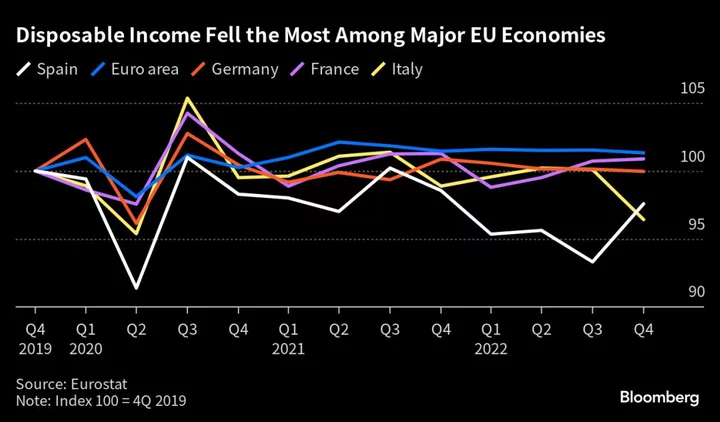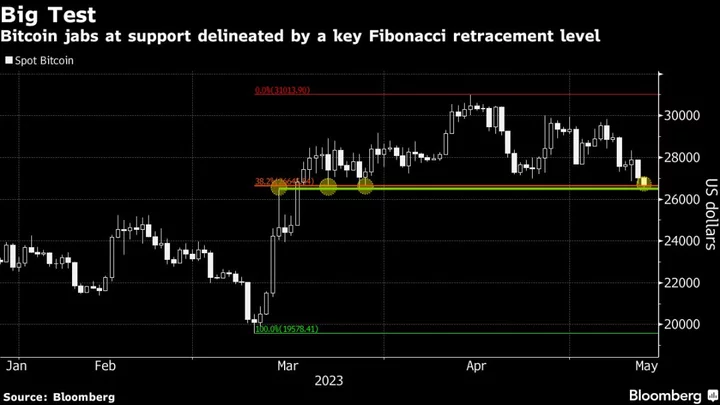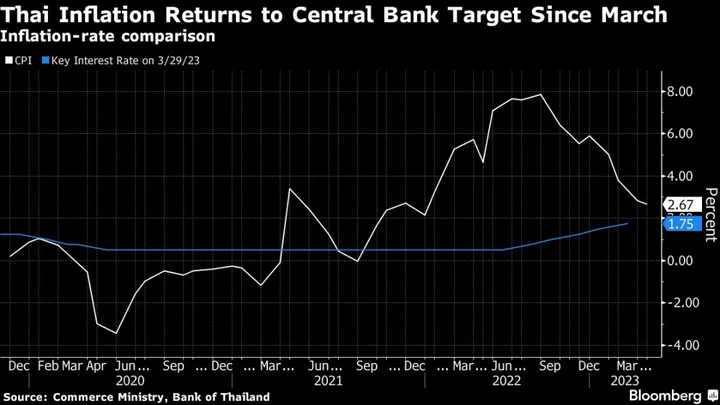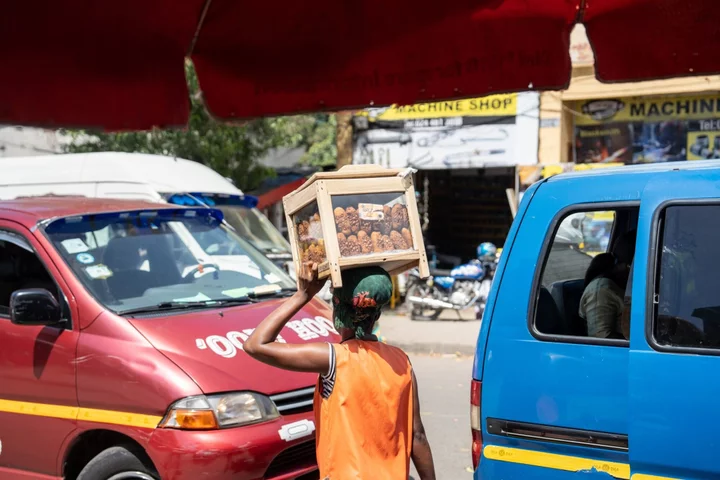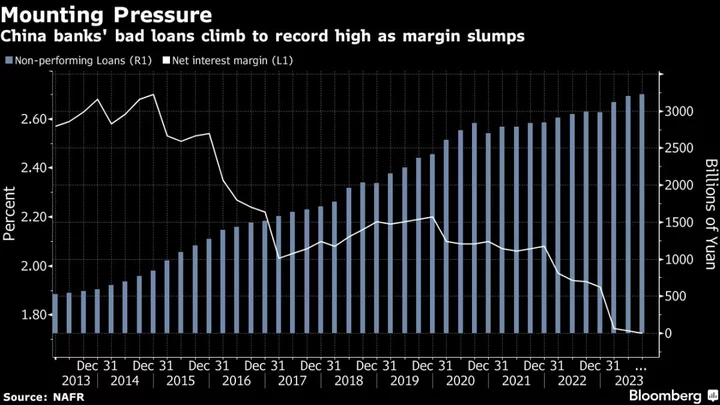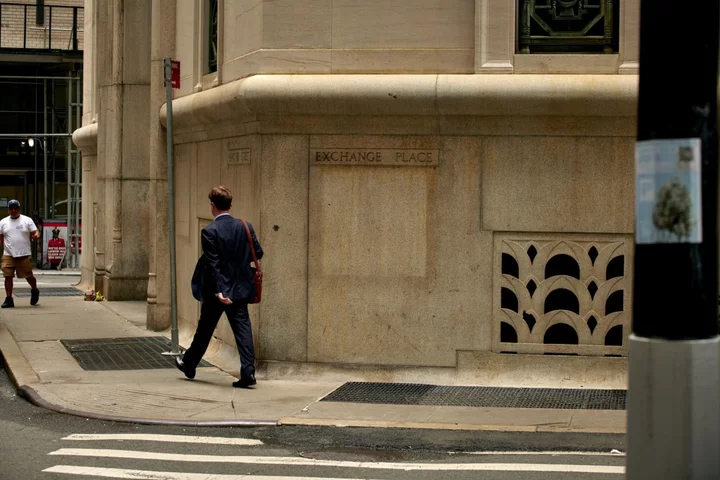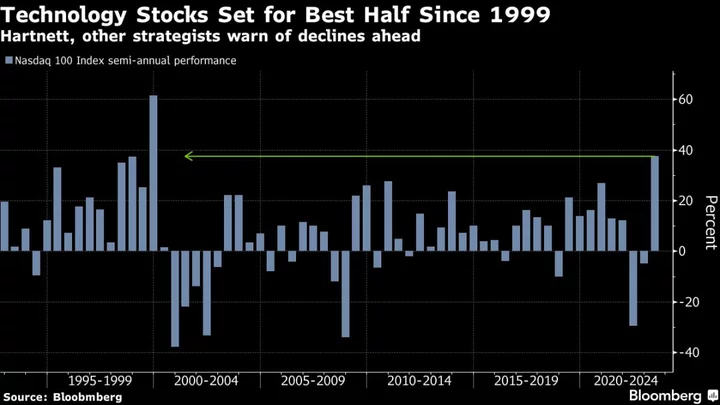In the quiet hamlet where conservative leader Alberto Nunez Feijoo grew up, his former neighbors fear that the frontrunner in Sunday’s general election will fall prey to Spain’s fractious politics.
“He was king in Galicia. He should have never left,” said Rosa Caride, an 80-year-old living with her husband in the three-story stone house that Feijoo grew up in Os Peares, 80 kilometers from the Galician capital Santiago de Compostela. “There are too many parties now. I’m afraid he won’t be able to govern like he did here.”
The leader of the People’s Party has never lost an election in Galicia, the northwest region and conservative stronghold where Feijoo ruled for 13 years. He won an absolute majority in four elections by taking a lighter-touch approach to his party’s traditional drive to privatize public services, opting for more gradual cuts in healthcare and education than elsewhere during the country’s last financial crisis and later raising some social benefits such as providing an annual payment to new parents until their children turn three, part of an effort to boost falling birth rates.
The population of Galicia is just under three million and rapidly aging. If Feijoo wins on Sunday his constituency will grow more than 15 times bigger, be much more diverse and demanding. Even if he comes top of Sunday’s national poll the path to power is not straightforward. Without an absolute majority, he will almost certainly have to win the support of the anti-immigration and abortion party Vox to rule — opening the door to the far right to hold a seat in government for the first time since the end of Francisco Franco’s 36-year dictatorship in 1975.
Largely unknown in the power circles of Brussels and Washington, Feijoo is one of the most famous regional politicians in a country where regional politics matter. He is also the center-right’s big hope to oust Socialist Prime Minister Pedro Sanchez. Victory would add momentum to the conservative shift in European politics, where traditional center-right parties have gained power as well as the far-right in some countries.
There is particular anxiety in Catalonia and the Basque country, where separatist movements are strong, that a more right-leaning government, dependent on Vox, could seek to erase some of their regional powers.
Critics say Feijoo is untested in complex national and international politics with his administration never properly scrutinized in the region where the People’s Party was conceived. His allies counter that he is one of Spain’s most senior leaders with a record of sound economic policies, which have contributed to a more than doubling in the value of exports since he took office in 2009.
Rarely touched by scandal, in 2013 the national daily El Pais published photographs of Feijoo vacationing with a man who was later convicted of drug smuggling. The then leader of Galicia, excused himself saying that at the time he didn't know the person would get involved in drugs. The story has gained fresh traction in the final days of the campaign hinting at the scrutiny the 61-year old Feijoo will face if he wins on Sunday.
Not a charismatic speaker, his rallies emphasize him as safe and secure: non-threatening. He describes himself as a “boring technocrat,” and his campaign has resolutely relied on his image as an efficient manager to try to convince voters to give him a working majority in parliament. Yet that has left lots of unanswered questions both about his agenda — on everything from the specifics of new industrial policies to how he will cut the country’s mounting public debt that is equivalent to 115% of GDP — but also the shape of any future government. He has remained ambiguous saying he prefers to govern alone in his call to voters, but not ruling out an alliance with Vox.
“He had a lot of control in Galicia, where his moderate image was carefully crafted, now he will be tested for the first time at the national level,” said Gonzalo Caballero, the socialist candidate who lost to him in the last Galician regional vote in 2020. “He is used to power and will make a deal with anyone to govern the country.”
Turning To The Far-Right
The People’s Party has already struck local alliances with Vox in dozens of municipalities and regions including the cities of Toledo and Burgos, following local elections in May, something that has drawn criticism for Feijoo. Some of those coalitions have already stirred controversy with measures including the banning of Walt Disney Co.’s animated film Lightyear because of a same-sex kiss between two of the characters. Another town ruled by both parties cancelled a performance of a theater adaptation of Virginia Woolf’s novel Orlando: A Biography, which makes references to homosexuality.
With about 60% of Spaniards worried about the far-right joining the government, according to an Ipsos poll released on July 10, Sanchez has doubled down on his warnings that a vote for the People’s Party is a vote for Vox and that Feijoo will roll back social gains in one of Europe’s most progressive democracies where same-sex marriage has been legal since 2005 and abortion liberalized since 2010. Sanchez, who called the snap election five months ahead of schedule after taking a drubbing in the May ballot — largely blamed on a government-sponsored sexual consent law that unintentionally reduced jail sentences for hundreds of sex offenders and his dealings with Catalan separatists — has clawed back some ground but remains nine percentage points behind Feijoo, according to a poll by GAD3 for ABC newspaper released on Monday.
Vox was born a decade ago as a breakaway from the People’s Party, but it is already the third largest group in parliament. It overlaps with its former colleagues on policy issues such as cutting taxes and raising jail time for Catalan separatists, but remains an anti-globalization party in the shape of others that have risen to power in Italy and Finland. The party wants to exit the Paris Climate Accord despite near record high temperatures in the country, raise import duties to protect local businesses and repeal legislation to prosecute violence against women. After the May elections it vowed in a statement to scrap council bodies dedicated to promoting equality, accusing them of “squandering” money.
To win outright, Feijoo’s People’s Party needs to win 176-seats in the 350-seat parliament, but the GAD3 poll shows it falling short of that number, at around 151 seats. Its best other option to win power is a coalition with Vox, which is estimated to be on course to clinch 29 seats.
Agreement with other conservative regional parties is unlikely to be enough for him to muster the majority needed to form a government, meaning a re-run of elections in a deadlock cannot be ruled out. No prime minister has won a majority in 12 years, since the victory of Mariano Rajoy of the People’s Party, in 2011. That was followed by a string of corruption scandals and economic crises that effectively erased the two-party system of conservatives and socialists.
Read more: Europe’s Far Right Doesn't Look So Fringe Anymore: Pankaj Mishra
Feijoo has criticized Sanchez for relying on what he calls a “Frankenstein” legislative alliance that includes separatist Catalan and Basque parties.
And although the economy has bounced back strongly since the Covid-19 pandemic with growth above the European average and employment at a record high, a sharp drop in real income due to record inflation has hurt Sanchez’ chances of re-election.
Feijoo, a career civil servant, has no experience of campaigning against Vox, which has repeatedly failed to make inroads in Galicia. Polls suggest the far-right party could lose ground compared to the 2019 result when it won 52 seats, but it may still have an outsized impact on the outcome of the race.
“The biggest challenge for Feijoo and his moderate policies will be his relationship with Vox,” said Pilar Mera, a political science professor at UNED University in Madrid. “He is an adaptable politician, and one of his biggest strengths has been knowing how to read what voters want.”
Party Savior
Feijoo talks often about his humble origins coming from the hill town of Os Peares with just a few dozen houses crossed by two rivers. He lived with his family above his grandmother’s small store before leaving, as a teenager, for boarding school in Leon.
In his mid twenties, Feijoo started as a civil servant in the budget office of the Galician government and quickly rose through the ranks. He was spotted by People’s Party politicians in the regional government and was offered a post running the National Healthcare Institute in Madrid. Considered a good manager, he was picked by party leaders as the successor to Manuel Fraga, the founder of the party, to run in Galicia's elections in 2009.
He used his connection to the rural heartland during rallies in small towns across Galicia to win that election against an alliance of socialists and regional leftist groups.
As Galicia leader he built strong ties with business. His partner is a former executive of Inditex SA, the global clothing retailer that is one of the region’s largest employers. He has a good personal relationship with the firm’s Chief Executive Officer, Oscar Garcia Maceiras.
As a candidate he has promised to continue to support Ukraine and follow EU fiscal guidelines. Domestically, he has pledged a fiscal overhaul, but hasn’t elaborated on details, only promising to lower income taxes on Spaniards who earn less than €40,000 a year and simplify corporate taxes for small and medium-sized companies. He has yet to reveal his pick for economy chief should he win and equivocated in public speeches and interviews on whether he will scrap or keep a controversial windfall tax on banks.
Read more: Spain’s Sanchez Is Struggling to Make Economic Case: Six Charts
During his time in Galicia his attempts to halt the decline in the naval and metal products sectors had mixed results. A €240 million investment pledge by Pemex to build seven tug boats and components for seven more announced by Feijoo in 2012 didn’t materialize after a drop in oil prices hit the finances of the Mexican oil giant. And manufacturing industry’s share of the region's economy dropped to 12.8% in 2021 from 13.5% when Feijoo took office in 2009.
Yet regional exports of everything from canned tuna to textiles rose to more than €30 billion last year — accounting for about 8% of national exports. Galicia also amassed investment pledges for as much as €6 billion on industrial projects thanks to measures designed to shorten by half approval times, said Francisco Conde, Feijoo’s former economics chief in the region. Companies that have pledged to invest in the region include energy giant Repsol, Portuguese pulp producer Altri and carmaker Stellantis NV.
Opponents argue that the administration in Galicia has never faced any real scrutiny because of its influence over the regionally-owned public media and its commercial relationship as an advertiser in private outlets in the region. Since 2018, dozens of journalists from CRTVG, a public broadcaster, have worn black every Friday in protest at what they say is its editorial manipulation to protect Feijoo’s image by not covering street protests against his government or downplaying national reports about corruption within the People’s Party. CRTVG denied accusations of bias.
In his manifesto, Feijoo has vowed to streamline regional and national business norms, extend tax payment deadlines to promote the creation of larger companies and give tax incentives to foreign investors. He also plans to fast track approval for renewable energy and promote output of clean fuels.
“Re-industrialization is a key part of his plan for the country,” said Conde, who local media says could be Feijoo’s pick to be industry minister. “Like he did in Galicia, he wants to offer the private sector the stability needed to bring investments.”
If the election had been called 18 months earlier Feijoo would not be in the race and it is unlikely that the People’s Party would be leading with just four days to go. Last year, the Galician rescued the national party from collapse after his predecessor was ousted in a power struggle with the party’s rising star, Madrid’s regional president, Isabel Diaz Ayuso. Feijoo built bridges between radical and moderate factions in the party, mended ties and stabilized it after its support tumbled to 21% in opinion polls.
At the time there was criticism that he had no agenda or policies and he had a rocky landing in Madrid, looking hesitant and unprepared in initial exchanges with Sanchez over taxes and economic data on the senate floor, when he took a seat in the upper chamber after he quit his post in Galicia. But Feijoo is learning the ropes of the capital’s tough politics and came out on top in the only televised debate with Sanchez earlier this month, surprising political pundits with his aggressive style.
“He is a lot more prepared than many think,” said Pedro Puy, a close ally who led the People’s Party majority in the Galician parliament. “As the head of an autonomous region you are part of national politics. His record is proof of that.”

